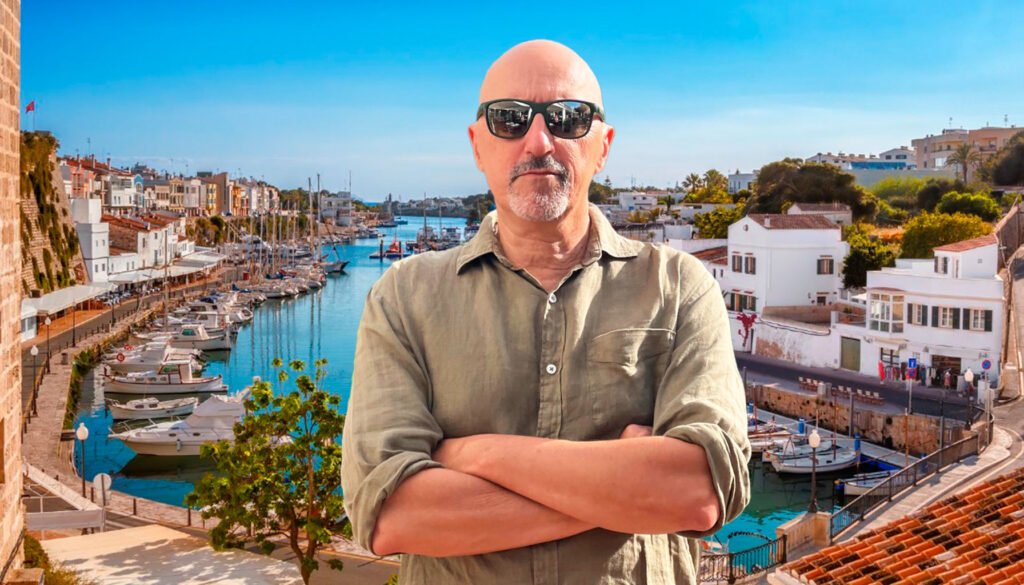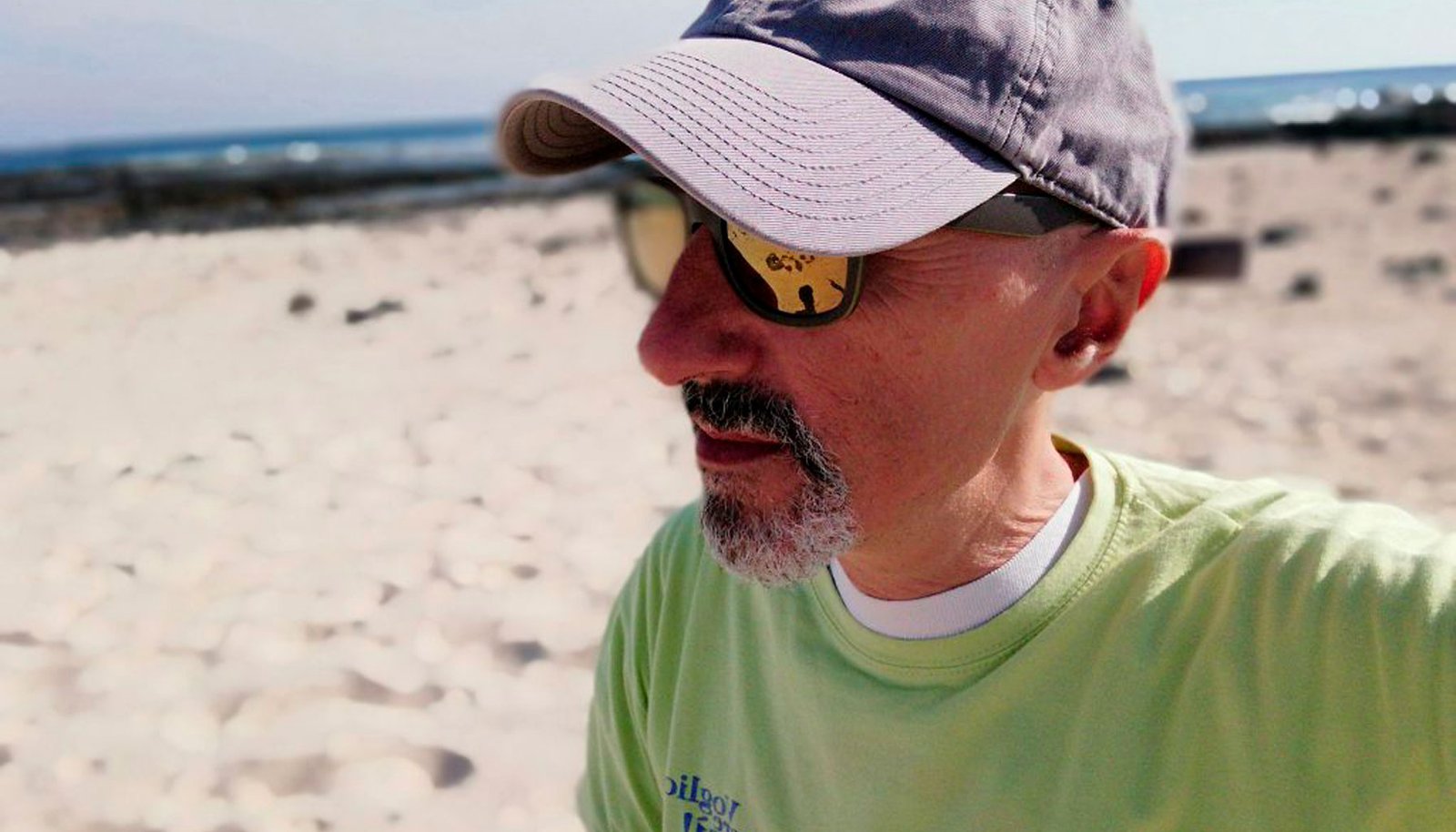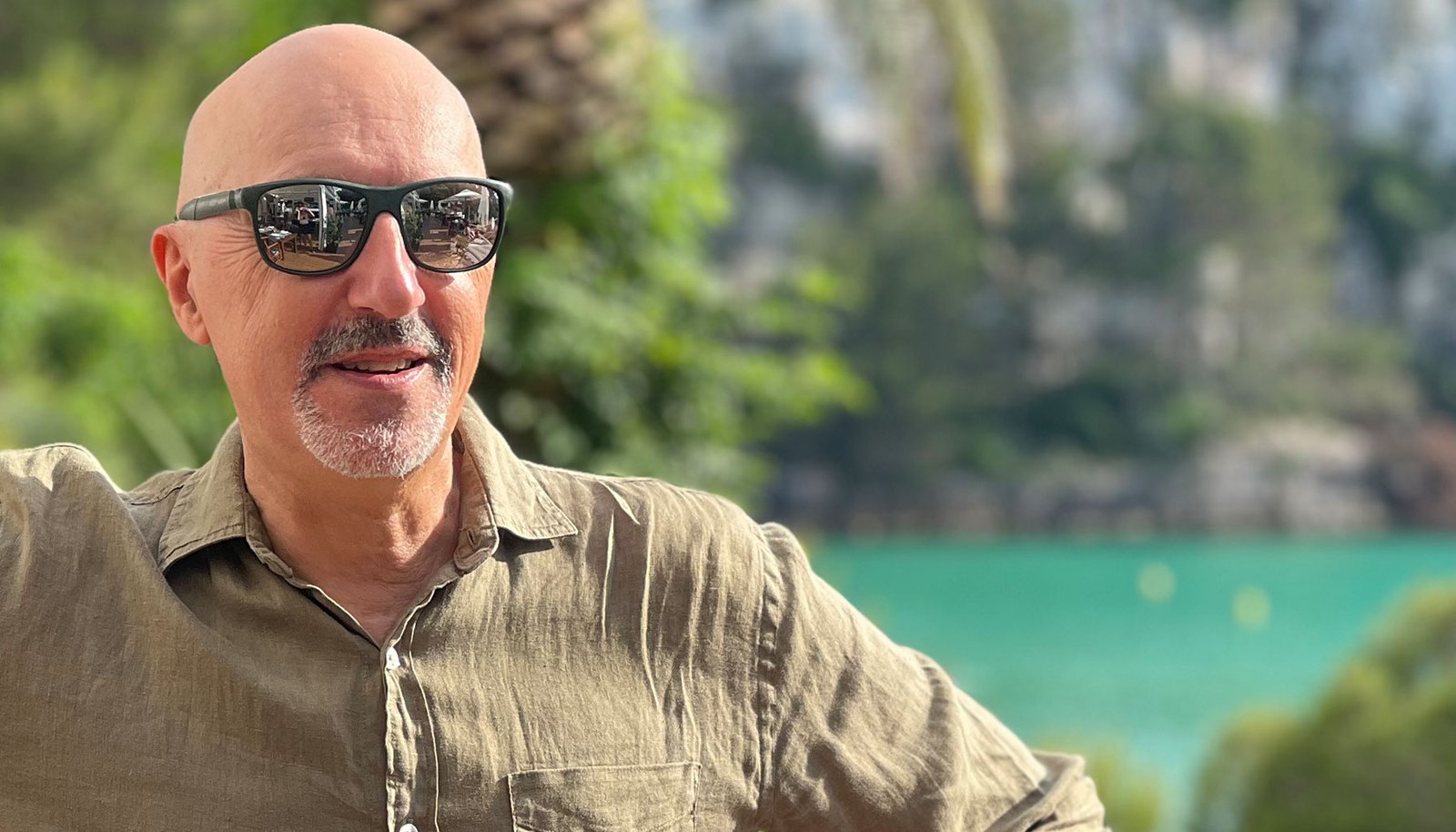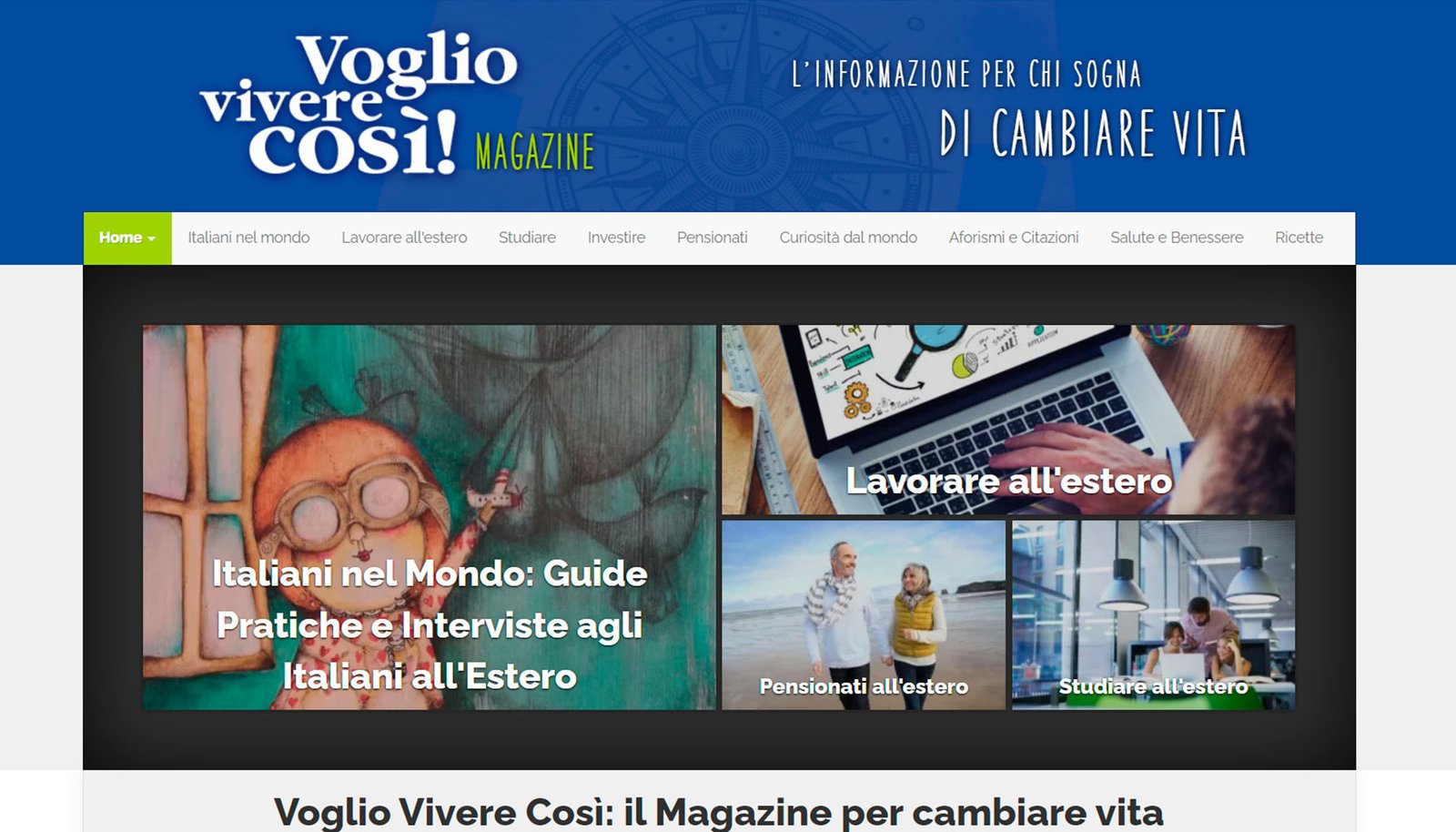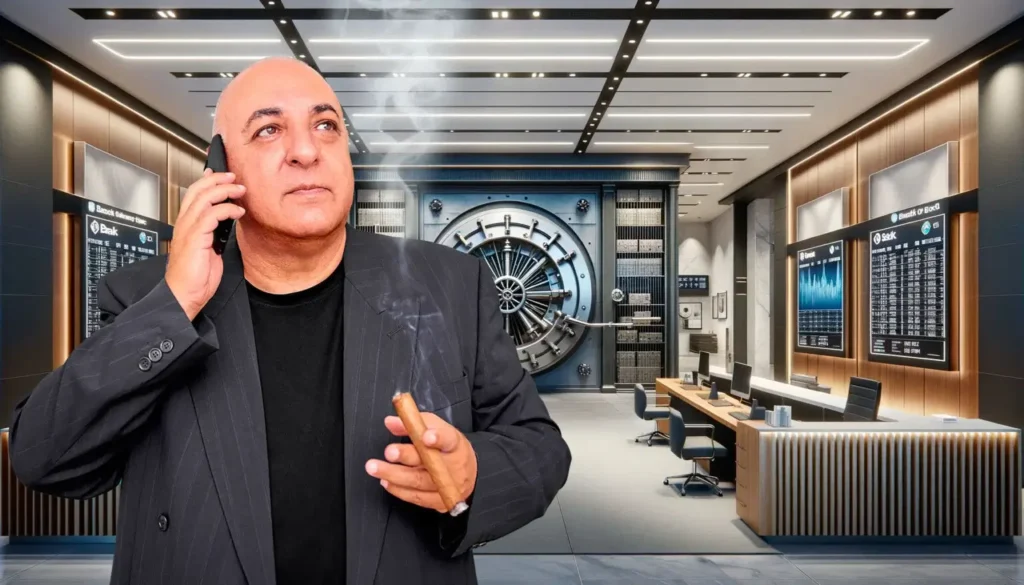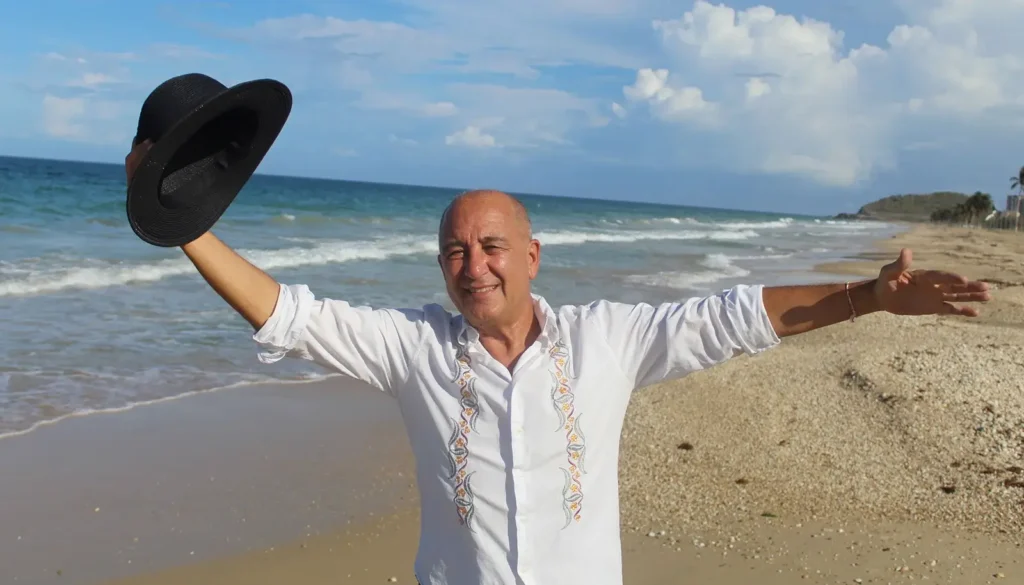Contents of the interview to Alessandro Castagna
Alessandro Castagna leads the Publisher Network Latitude 40 and I Want to Live Like This, inspiring thousands of people to change their lifestyles
Alessandro Castagna is an online entrepreneur and pioneer in the digital world, with a strong interest in tourism and international lifestyles. After graduating with a degree in Political Science and obtaining a Master’s in Tourism Marketing, Alessandro began his career with an innovative approach. Born in 1964 and happily married, he is considered a guru of life change.
In 2007, Alessandro Castagna launched the online magazine “Voglio Vivere Così”, in English, I Want to Live Like This, a platform dedicated to those who dream of changing their lives and moving abroad. The phrase expresses a desire for a specific lifestyle, often associated with simplicity, freedom, or joy. It is also the title of a famous Italian song from the 1940s, which conveys an idyllic longing for a peaceful and carefree life, often linked to rural or idyllic settings.
This project was a great success, leading him to create an entire network of over 20 websites, all dedicated to similar themes. Alessandro Castagna can undoubtedly be considered a magnate of the Libertarian online press.
In 2012, Alessandro Castagna founded “Latitudine 40”, in English Latitude 40, initially in Verona, Italy, but subsequently moved to Minorca, one of the Balearic Islands, Spain, which conquered him with its natural beauty and tranquil pace of life.
The online editorial group has become a reference point for those who wish to live unconventional experiences. This success is also thanks to the support of a group of about 30 journalists and freelance collaborators, both Italian and international, who work while traveling or settling in exotic destinations.
Alessandro transformed his passion for travel and desire for freedom into a successful entrepreneurial project, offering many people the opportunity to explore new paths and embrace an alternative lifestyle.
With a curious and open-minded soul, he was able to seize the opportunities life offered him, transforming his passion for travel and tourism into a true career. Alessandro Castagna is one of those people who always seems ready to embark on a new adventure, whether real or virtual.
From Verona to Minorca, the journey of a successful online editorial group
Born in Verona, Italy—the UNESCO heritage city undoubtedly linked to the love story of Romeo and Juliet, immortalized by William Shakespeare—Alessandro Castagna transferred Shakespeare’s magic to the Balearic Islands, Spain.
In fact, for over a decade, Alessandro Castagna has been living in Minorca, an island known for its tranquil atmosphere and pristine natural landscapes. His love story with the island began in 1998 when he visited it for the first time and was fascinated. After years of summer vacations, he decided to move permanently in 2011. In a world that moves fast, Alessandro chose the “poc a poc” (little by little) approach of Minorca, a slower and more sustainable pace of life, in harmony with nature and people.
C500s interviewed Alessandro Castagna, the guru of the online press dedicated to dropping everything and changing lives and asked him about his life, career, and the miracles of his online editorial success.
What prompted you to make the move from Italy to Spain? After all, the change isn’t drastic.
Alessandro Castagna – Apparently, it’s not drastic, but the choice I made (Minorca in the Balearic Islands) was driven by the necessity to live near the sea and surrounded by pristine nature. The trigger occurred when I became aware that the constant stress generated by daily living in a noisy city, constantly enveloped by smog in the Po Valley, was detrimental to my mental and physical health. Biophilia, my innate love for nature, gave impetus to my decision.
Why did you choose Minorca as the place to move to, and what impressed you most about this island?
Alessandro Castagna – I chose Minorca for its slow pace, respect for nature, beautiful sea, and its manageable distance from Verona, where I now return very rarely.
Minorca, part of the Balearic Islands, is known for its pristine beaches, protected nature, and tranquil atmosphere. Designated a UNESCO Biosphere Reserve, it offers varied landscapes, with sandy beaches to the south and wilder coasts to the north. The Camí de Cavalls trail encircles the island, ideal for trekking and cycling.
Minorca’s economy is primarily based on tourism but preserves agricultural and artisanal traditions, such as the production of Mahón-Menorca cheese and leatherwork. Fishing, particularly for the famous Caldereta de Langosta, is another significant activity.
Two languages are spoken on the island: Catalan (in the Minorcan variant) and Spanish. The use of Catalan dates back to the conquest by the Crown of Aragon in 1287. Despite subsequent dominations and linguistic repression during the Franco dictatorship, Catalan has survived in family use and regained importance with the advent of democracy. Today, it is used in administration, education, and signage, reflecting the island’s cultural identity.
The main cities are Mahon, the capital and home to a large natural port, and Ciutadella, known for its historic charm and San Juan celebrations. Minorca stands out from the neighboring islands for its relaxed lifestyle, offering less mass tourism, more oriented towards well-being and nature.
After over a decade, have you regretted moving to Spain?
Alessandro Castagna – I am happier than ever with my choice and have never regretted it. Changing countries is one of the most cathartic experiences of my life, and I have no regrets because every day I feel enriched by my experiences. I have learned to adapt, to see the world with new eyes, and to grow as a person, facing challenges that have made me stronger.
Why didn’t you choose a tax haven or a Caribbean island?
Alessandro Castagna – The distances and the fact that my parents were still alive but dealing with some ailments at that time held me back. I preferred a destination no more than a few hours’ flight from where they lived.
How did the idea to create the site I Want to Live Like This come about and what was your main inspiration?
Alessandro Castagna – It all started through travel. In 1995, I opened a store and a website with a partner in Verona that sold jewelry and ethnic crafts. To find new products, we traveled extensively during that period. In every country we visited, we found some Italians who had emigrated for various reasons and had beautiful stories to tell. I wondered, “Why not create a magazine to showcase all these wonderful experiences?” Thus, in 2007, “Voglio Vivere Così” I Want to Live Like This, was born. The goal is to inspire and help those undergoing transitions, providing useful information for individuals seeking to transform their lives.
What have been the biggest challenges you faced in building the network of websites you manage today?
Alessandro Castagna – Keeping up with the constant changes in Google’s algorithms became increasingly challenging. Eventually, I became tired and decided to dedicate myself solely to the editorial and content aspects.
Choosing between Google’s algorithms and editorial content involves deciding whether to rely primarily on search engines’ automatic classification systems or to prioritize a human-curated approach to information. On one hand, Google’s algorithms are designed to provide quick and relevant answers based on keywords, behavior analysis, and ranking criteria.
They are powerful tools for finding a vast range of information in seconds, but they can often return standardized or incomplete results, lacking depth or context. Editorial content, on the other hand, offers a level of depth, quality, and narrative that algorithms struggle to replicate.
An article crafted by experts or journalists results from critical analysis and the conscious evaluation of sources—elements often missing in purely algorithmic results. However, this level of quality requires time and is not always optimized for search engines, which can limit its visibility.
In the end, the choice depends on priorities: if I’m seeking quick and general answers, I’ll rely on algorithms; if I want to thoroughly understand a topic and gain a more in-depth perspective, I’ll prefer editorial content. By integrating both resources, I can achieve the best of both worlds: speed and comprehensiveness on one side, and quality and accuracy on the other.
Can you provide an overview of the “Latitude 40” editorial group and share some data for each magazine?
Alessandro Castagna – It’s complicated; I have almost 30 websites. Almost all of them are dedicated to travel. The ones with the highest traffic are I Want to Live Like This, which reached an average of 10,000 readers per day last year, and Isola di Minorca, with about 700,000 readers in 2023.
Managing “Latitude 40”‘s portals means immersing yourself in passionate editorial projects, each dedicated to a specific destination or theme. Among my main magazines are Tierra, a window into Spain, designed for those who want to immerse themselves in its culture and local realities. I also manage specialized portals focused on individual islands. For example, I have a detailed guide on Minorca, which attracts over 300,000 visitors annually interested in its natural and cultural wonders.
I carry out projects on other beach destinations: Formentera, known for its chic and relaxed lifestyle; Ibiza, the kingdom of fun and nightlife; and Mallorca, perfect for those seeking a mix of nature, sports, and cultural tourism. Additionally, I work on Lanzarote, famous for its volcanic landscapes, and Fuerteventura, a destination loved by surfers worldwide.
I enjoy showcasing not only the Mediterranean but also other Southern European islands, such as Crete, Malta, and Rhodes. I strive to capture the essence of these places for those who want to travel or change their lives. Finally, I manage thematic projects like Area 54 Marketplace, a space for buying and selling businesses, and a series of eBooks dedicated to those who dream of reinventing themselves abroad.
Why the name Latitude40?
Alessandro Castagna – It’s the Latitude of Minorca, where I live and work, and inspired the name “Latitude 40”.
What is your video strategy? Why haven’t you created a Latitude40 channel?
Alessandro Castagna – We have a YouTube channel for “Voglio Vivere Così”, but we manage it with minimal resources. Years ago, we created a web series together with Doris Zaccone from Radio Capital called Vivo Così. However, since last year, I have focused on the Instagram profile of Minorca, which is giving us great satisfaction (almost 8 million impressions in August 2023 and 2,800,000 users reached).
What is the project you are most proud of within the I Want to Live Like This network and why?
Alessandro Castagna – I believe it is the Facebook group “Discovering Minorca,” which over the years has become the reference point for those who want to discover the true essence of Minorca.
How has the world of online publishing changed since you started your journey in 2007?
Alessandro Castagna – It continuously evolves. There are new players, and the established large players have focused on paid services. However, people are reading less, both in print and online publications. Videos are now making a significant impact. This trend has persisted for several years.
The online publishing sector is undergoing a rapid transformation, driven by the adoption of digital technologies and new consumption habits. Book sales and content sales are increasingly shifting towards e-commerce, while physical bookstores, although recovering some market share compared to the pandemic period, remain less central than in the past.
Digital is not just a distribution channel: eBooks, audiobooks, and self-publishing are reshaping the traditional dynamics of the industry. Economic challenges, including inflation and income fluctuations, are impacting the market by reducing margins. This forces publishing houses to keep prices low to avoid dampening demand.
However, forecasts indicate that in 2024, cultural consumption could gain momentum again, thanks to economic stabilization and new digital opportunities. At the European level, the entire publishing sector is valued at around €38 billion, confirming the book’s central role as a cultural product, both in print and digital forms.
Simultaneously, the growth of audiobooks reflects an interest in more flexible consumption methods, while emerging technologies like artificial intelligence are beginning to influence editorial processes, from content production to the personalization of reading experiences.
The future of publishing will be determined by the ability to integrate technological innovation with cultural tradition, while maintaining a focus on readers’ needs and the economic and environmental sustainability of the sector.
Why didn’t you expand your range of magazines with Spanish publications?
Alessandro Castagna – I don’t have enough time and prefer to focus on a few things and do them well. Additionally, I decided to change my life to live a better life, not to become a magnate of online publishing.
What would you advise someone who dreams of changing their life and moving abroad but is afraid to take the big step?
Alessandro Castagna – First, have a well-structured project. Thoroughly inform yourself by reading, talking to locals before moving, and relying on serious professionals for bureaucratic aspects. The “do-it-yourself” approach doesn’t always have positive outcomes.
If you are thinking of changing your life, I would tell you to start with deep reflection. It’s not enough to want to escape a situation that doesn’t satisfy you; it’s essential to understand what you truly desire and what motivates you. Change can be an extraordinary opportunity, but it must be approached with awareness. Ask yourself if you are seeking more freedom, a simpler life, a job more aligned with your values, or perhaps a different environment where you can finally feel like yourself. Without clear goals, you risk finding yourself dissatisfied again after a short time.
I would suggest not being afraid of uncertainty, but at the same time, avoid rash steps. Every significant change requires concrete planning: inform yourself about the place or environment to which you want to move, network with those who have already embarked on a similar path and evaluate the realistic opportunities that present themselves. Initial difficulties are normal and part of the process. Prepare for some sacrifices, but keep in mind that every challenge will bring you one step closer to what you are seeking.
Don’t expect everything to be easy. Sometimes you’ll encounter obstacles that test your decision, and in those moments, you’ll need to remember why you chose to change. The key is perseverance: accept the idea that there will be ups and downs, and focus on the journey, not just the destination. True change lies not so much in what you leave behind, but in what you are ready to build.
Normally, people leave everything and build something new, but you took your project with you. What has changed in your work program between Italy and Spain?
Alessandro Castagna – One fundamental thing: I take a break every two hours or less to go for a walk on the beach or take a swim in the pool (in summer). This helps me decompress and detach from the many hours spent writing or working at the computer.
How do you keep your collaborators engaged, who live and work in such distant and different places?
Alessandro Castagna – They love their work; they almost never need incentives. I love surrounding myself with positive and proactive people because to do this job, you need the right attitude.
What do you think is essential for the success of a digital business in the online publishing sector?
Alessandro Castagna – Essential elements include a lot of dedication and many hours of work, interspersed with time by the sea and the pool, of course. A forward-thinking mindset and a great deal of empathy are also crucial, along with always staying updated.
What are your future plans for Latitude40 and for the network you’ve created? Do you have new projects in mind?
Alessandro Castagna – I am working on new projects that will be launched here in Minorca next year. The main one is the “Menorca Travel Helper,” which we will discuss soon.
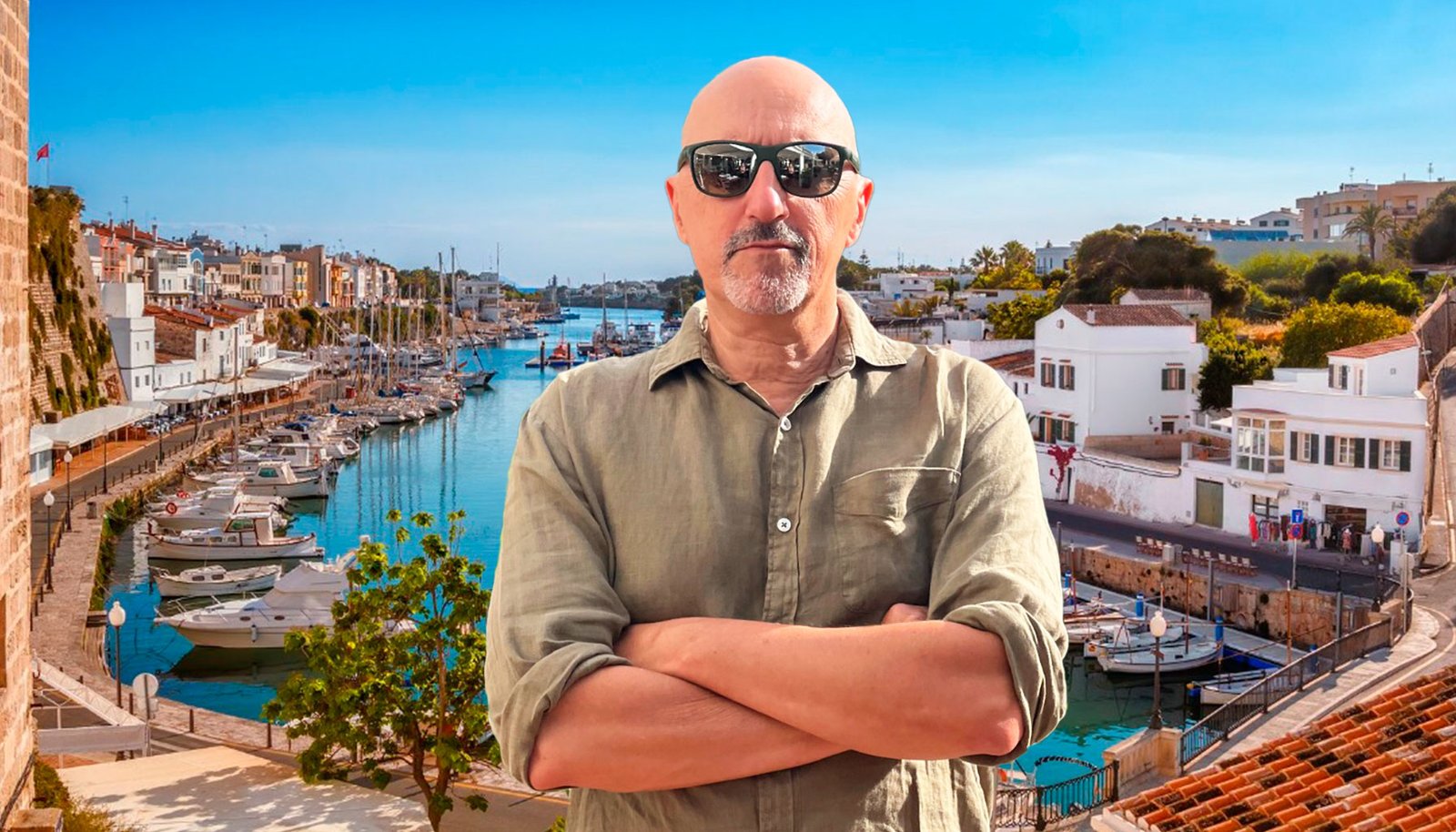
Alessandro Castagna, the Pioneer of I Want to Live Like This
Contents of the interview to Alessandro Castagna Alessandro Castagna leads the Publisher Network Latitude 40 and I Want to Live

Energy and Climate Change
Energy and Climate Change.How New Environmental Regulations Affect Everyday Life in the United States
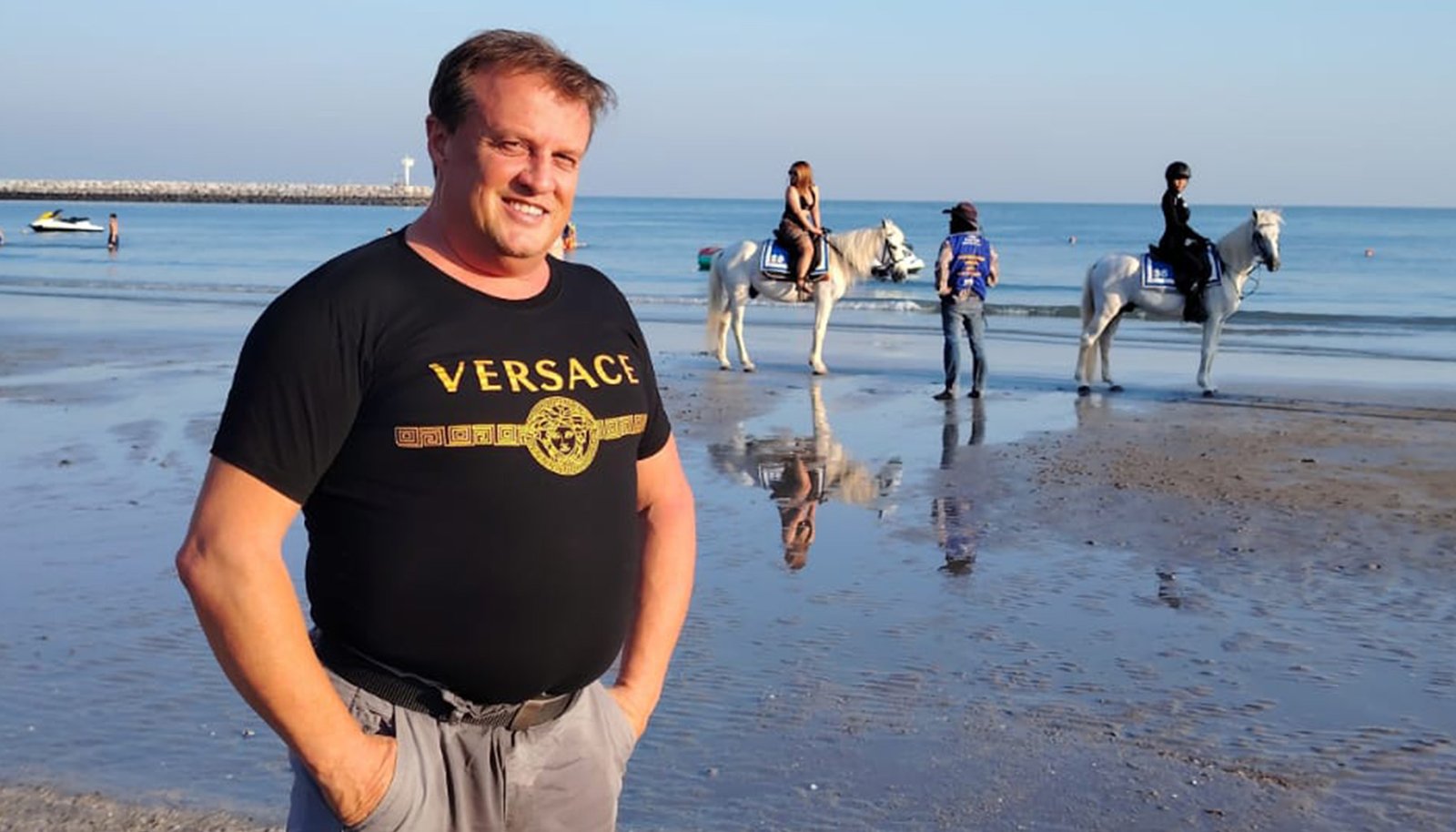
Giorgio Porcellana and the Controversial #1 Gift Economy
Islands of Change, the solidarity and gift economy platform created by Giorgio Porcellana, is revolutionizing digital finance
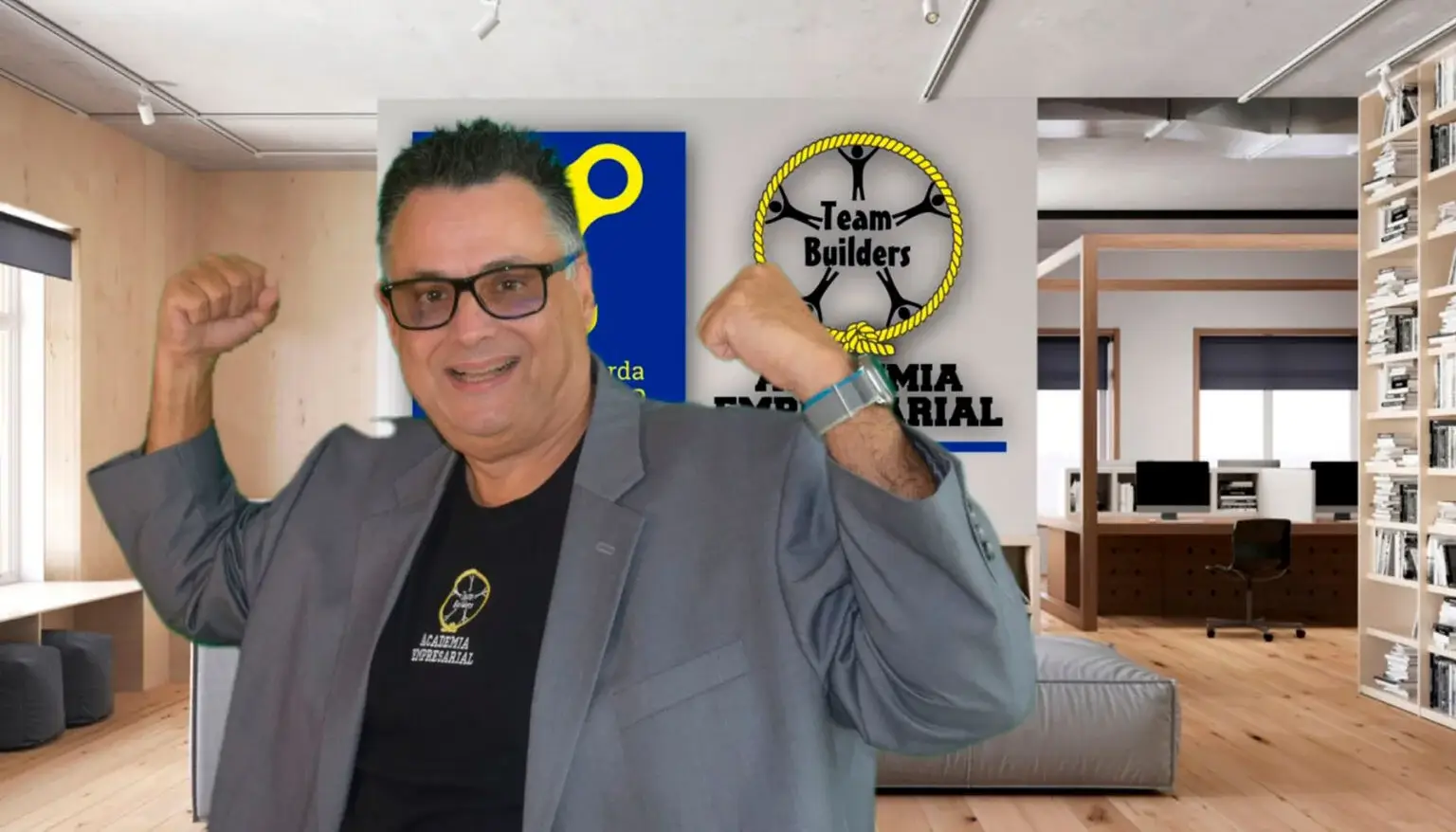
Miguel Esquivel Klein Leadership Strategist
Miguel Esquivel Klein, better known as Mike, is a leadership and productivity expert with innovative online and offline methods Miguel

How to become a successful Digital Entrepreneur?
A digital entrepreneur is someone who owns and runs an entirely online business, using digital platforms to offer various products
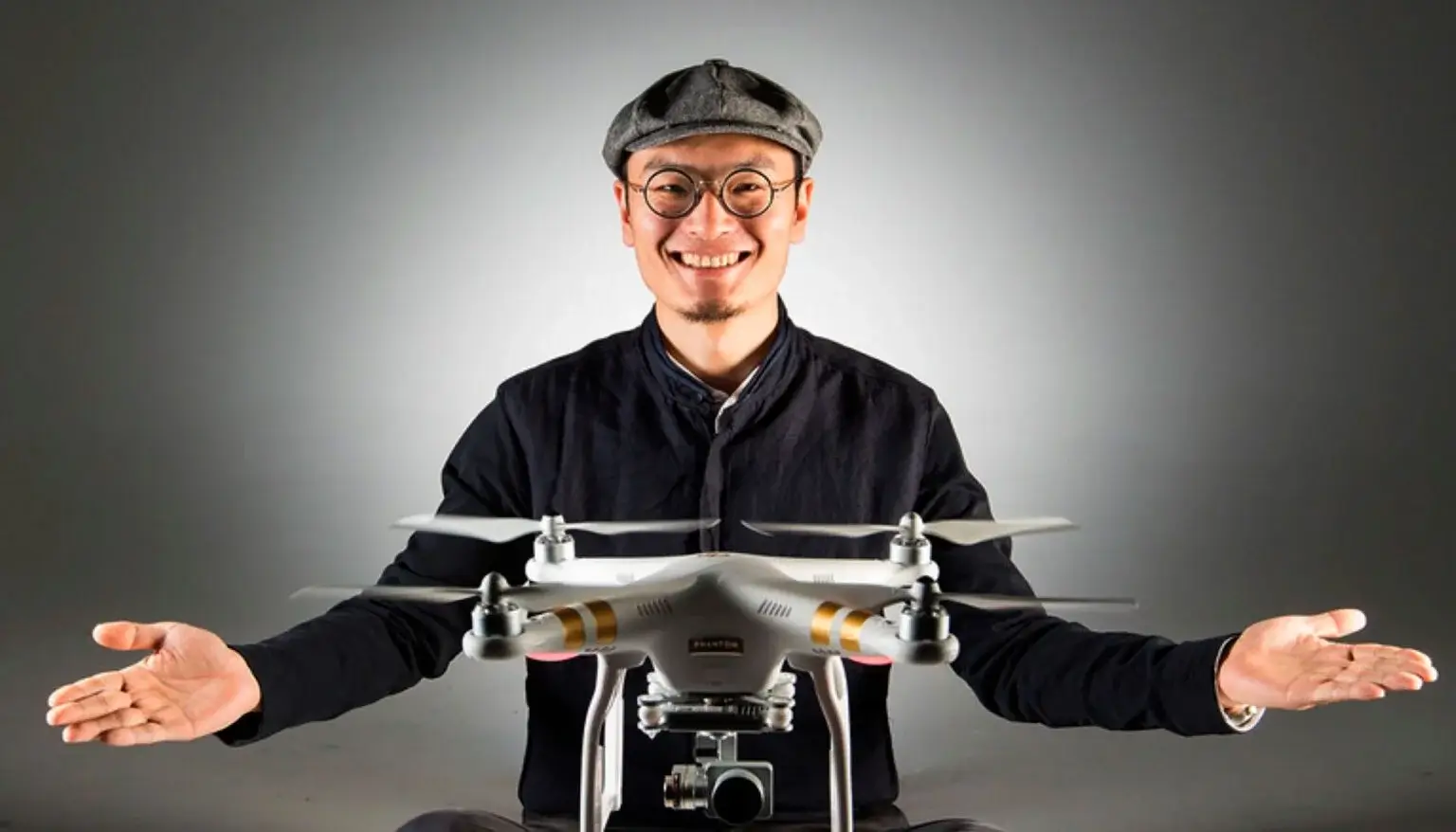
Frank Wang, the 1st Adventurous Drone New Billionaire
The Chinese entrepreneur Frank Wang is the founder of DJI, the world-leading company in drone sales Wang Tao, better known

